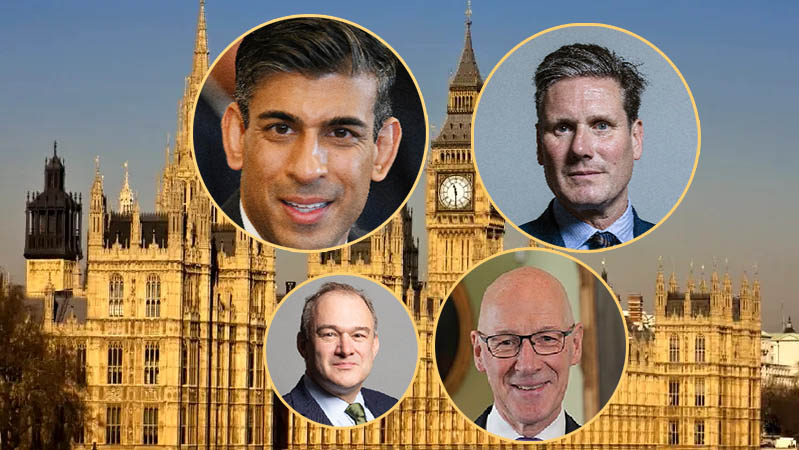
- One major issue was the ‘Partygate’ scandal, where Conservative gatherings during a period of strict COVID-19 restrictions were seen as violations of the guidelines.
- Despite the promises made by Johnson post-Brexit, many of these commitments have failed, with reports indicating that bureaucracy, or red tape, has increased since Brexit compared to pre-Brexit times.
- Sunak has faced significant challenges, including a technical recession, which has been capitalized on by his opponents, led by Labour leader Sir Keir Starmer.
The upcoming United Kingdom election scheduled for July 4th is one of the most anticipated events in recent political history. The Conservative Party, which came into power in 2019 under the leadership of then-Prime Minister Boris Johnson, has faced numerous challenges since then.
When the Conservatives won in 2019, they were celebrated for their efficiency and eligibility. However, maintaining their stronghold has been difficult, particularly in London. Multiple controversies have arisen, making the Conservatives the second favourite in the upcoming election.
One major issue was the “Partygate” scandal. During a period of strict COVID-19 restrictions, Conservative gatherings were seen as violations of the guidelines. Johnson, who had introduced these restrictions, faced significant backlash and eventually resigned. This controversy was a major reason for his resignation.
After Johnson, Liz Truss, who had served as the Foreign Secretary under Johnson, became Prime Minister. However, she struggled to stabilize her position and resigned after just 45 days due to immense pressure and criticism.
Rishi Sunak succeeded Truss in 2022. Sunak, who had been the Chancellor of the Exchequer during the tenures of both Johnson and Truss, has been Prime Minister for the past year and a half. Despite his efforts, he has not been able to fully address the crises facing the United Kingdom.
The second major reason why Prime Minister Boris Johnson and the Conservative Party faced significant struggles was the failure of Brexit and the unmet economic promises. One of the main factors that helped the Conservatives come to power in 2019 was their stance on Brexit. The United Kingdom argued that it was not benefiting from its membership in the European Union, which led to the push for Brexit.
Former Prime Minister Boris Johnson asserted that leaving the European Union would benefit the UK economically and reduce bureaucracy. He claimed that Brexit would remove excessive regulations from the UK in every department. However, a key reason for Brexit was the perceived neglect of the UK’s interests by the European Parliament in Brussels.
Despite the promises made by Johnson post-Brexit, many of these commitments have failed. Reports indicate that bureaucracy, or red tape, has increased since Brexit compared to pre-Brexit times. Additionally, the economic struggles of the UK have worsened. Geopolitically, the UK’s relationship with the United States has also suffered.
As a result, there is significant discontent among the British public, with reports showing that 50% of Britons now want Brexit to be reversed.
Challenges for PM Sunak
All of these major problems have been inherited by Prime Minister Rishi Sunak as legacy issues. Despite his great promises when he served as Chancellor under Prime Ministers Boris Johnson and Liz Truss, Sunak has faced significant challenges. He was hailed as a potential saviour for the United Kingdom, but his tenure has seen a technical recession, which was not experienced during Johnson’s time.
This has been a major problem for Sunak, and it has been capitalized on by his opponents, led by Labour leader Sir Keir Starmer. Starmer is now considered the favourite to become the next Prime Minister of the United Kingdom, promising to undo many of the Conservative reforms. Opinion polls indicate that Labour is significantly ahead of the Conservatives.
Adding to the political intrigue in the UK is the return of veteran politician Nigel Farage. Farage had stepped away from active politics for a while, pursuing different professional interests, but he has now decided to return. His party, known as the Reform Party, has introduced new promises and a right-wing agenda, making UK politics even more interesting. Farage’s return poses a challenge to both the Conservatives and Labour.
Aayush Pal is a freelance writer on contemporary geopolitical developments. The views expressed in his work are entirely his own.
